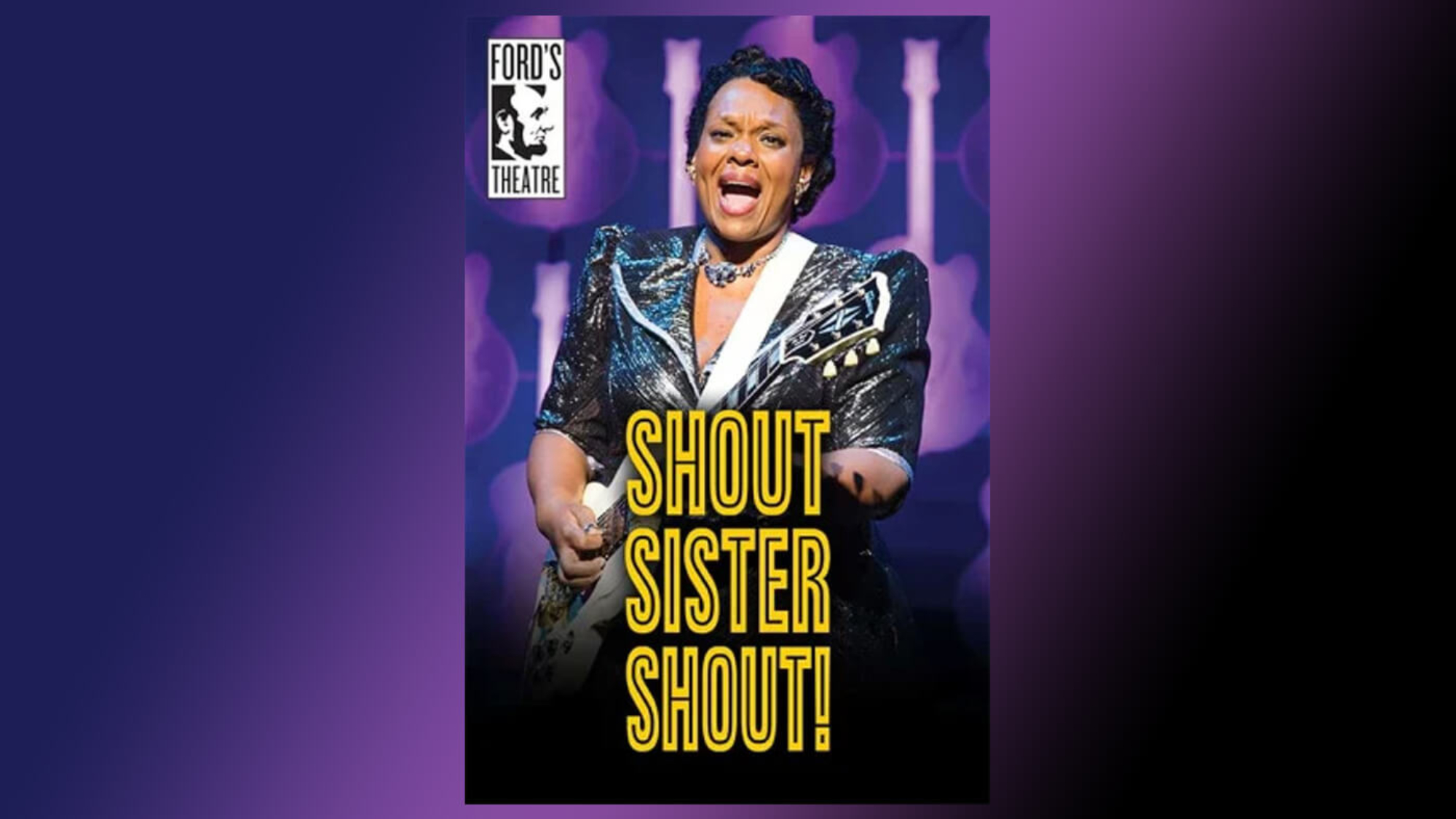A reflection on SHOUT SISTER SHOUT
by Victor Simonson Associate Music Director
The story of Sister Rosetta Tharpe is a story about music, loss and the triumph of the power of love. The godmother of rock and roll as she is affectionately called was anointed and gifted at a young age to sing and play the guitar. As she shared her gifts within the church and eventually outside of the church, she found a way to honor her desire to share God’s love through song to the world
She did this part by courageously singing or swinging her spirituals and hymns in a medium that was palatable to people outside of the church, in prestigious venues like the Cotton Club and Carnegie Hall in 1938 where people were likely not expecting to hear gospel music. During her performance of “That’s All” at Carnegie Hall in 1938, “audience members were on the edge of their seats moving in time to her rhythms”1. Even Count Basie remembered that “cool New Yorkers were almost shouting in the aisles”, and “there were a lot of people out there who never heard that kind of singing”2. I can imagine the anointing that was flowing through Rosetta in those rooms where the gospel was being sung gloriously!
She represented the strength, determination, beauty, and grace of women especially a black woman. Rosetta had marriages that failed and was estranged from the church because of her choice to pursue a career mainly singing outside of the church. Her close friend, lover and singing partner, Marie Knight, chose to leave Rosetta on the road in part because she lost her two children in a fire. Despite these many challenges, Rosetta persevered and eventually went on to tour the United Kingdom, and Europe with the Blues and Gospel Caravan featuring Rosetta, Muddy Waters and Otis Spann. To be black and a woman touring through the 1940s and 1950s meant often sleeping on bed in her bus because there was no hotel that would welcome her (she had her own tour bus!) and having someone bring you food when segregated restaurants wouldn’t serve black people. Her biggest hit, “Strange Things Happening Everyday” in 1945 reflected the reality of her success despite the harsh treatment of black people.
Rosetta was prophetic because she sang religious music in a secular space thus elevating the importance of gospel music. In doing so, Rosetta in part returned African American Christian music to its African roots. In most of the African diaspora there is no distinction between the sacred and the secular. As purported by Melva Wilson Costen, “For most African societies, life is viewed holistically rather than in separate compartments as created by a secular-sacred dichotomy”.3 Thus, Rosetta singing gospel music in a secular setting would break down barriers and walls that may have prohibited gospel music from being heard in those settings thereby, in part, returning American society and culture to a
more African feel, where no sacred-secular barrier exists.
That Rosetta entertained a lesbian relationship speaks to her ethic of love, honesty and courage. She entertained this relationship at a time when gospel artists could never disclose a homosexual relationship. Many gospel artists today are not able to disclose their sexuality publicly for fear of being judged. Many churches still prohibit women from preaching and prohibit homosexuality or judge those who are homosexual. Rosetta’s life invites us to consider these questions: How am I being judgmental of others because of behaviors I deem inappropriate? How can I accept the mystery of God operating in all the created order?
In the scene in SHOUT SISTER SHOUT when Marie Knight leaves Rosetta because her children died in a fire, she blames herself and her lesbian relationship with Rosetta as the cause for her children’s death. Had Marie embraced the mystery of God, accepting herself and the love she shared with Rosetta instead of judging herself harshly perhaps she would have chosen to stay with Rosetta longer. Through Rosetta’s career and ministry of music, we are invited consider the ways in which the African American Christian church and Christ has often demonized music that is secular and behaviors deemed sinful when perhaps love, tolerance and acceptance is most needed.
Rosetta’s life was undergirded by a deep abiding love of God and all humankind and a desire to share her love of God through song. I have been blessed to bear witness to her life, strength, grace, and brilliant musicianship. I am grateful to the creative team, cast, orchestra and crew for the sharing in this work and for the privilege of telling this story each nights! I am hopeful that I too, can “live the life I sing about in my song” and “have more love, more understand, everyday of my life, and That’s All”!


Leave a comment